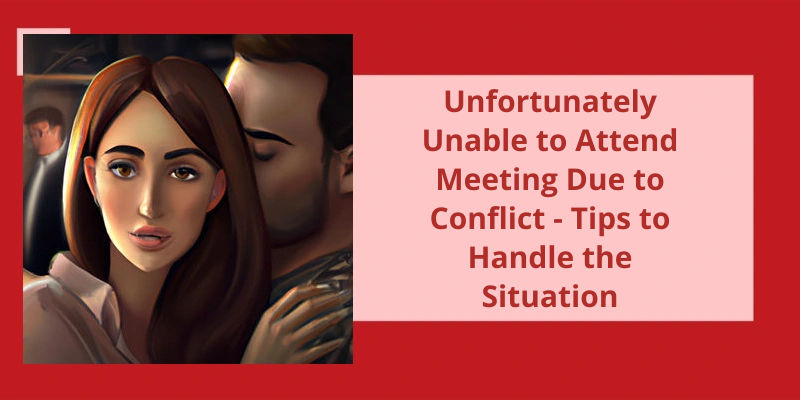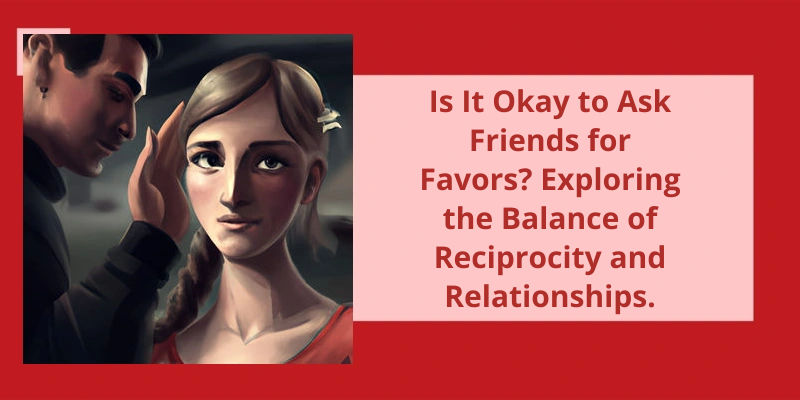I regret to inform you that I’ll not be able to attend the meeting as scheduled. This is due to an unavoidable conflict that’s arisen unexpectedly. It’s always my intention to attend all scheduled meetings and events, but in this instance, circumstances beyond my control have prevented me from doing so. Please accept my apologies for any inconvenience this may have caused and trust that I’ll work diligently to remain informed about any decisions or outcomes of the meeting. Thank you for your understanding and cooperation in this matter.
How Do You Say I Have a Meeting Conflict?
It isn’t uncommon to face scheduling conflicts, especially when you’re working in a busy and demanding environment. Having to reschedule a meeting can be a daunting task that requires a certain level of tact and diplomacy. One way to effectively communicate this to the other party is by acknowledging the issue and being apologetic about the inconvenience caused. It’s important to convey this in a professional manner and to offer potential alternatives that can help rectify the situation.
When faced with a scheduling conflict, it’s important to be clear and concise about the situation. It’s best to avoid vague or ambiguous statements that can potentially cause confusion or misunderstandings. By being transparent and forthcoming about the situation, you not only demonstrate professionalism but also pave the way for open communication and resolution.
A common way to communicate a scheduling conflict is by using phrases such as “Im sorry to inform you” or “I regret to say” as a preface before explaining the situation. These phrases show empathy and sincerity, which can go a long way in mitigating any negative feelings that might arise from the other party. Additionally, by providing a detailed explanation of the conflict, you can avoid any potential miscommunications and provide clarity to both parties.
After acknowledging the issue, it’s important to offer possible solutions that can help resolve the conflict. By offering alternatives that are suitable for both parties, you can demonstrate your willingness to work collaboratively and your commitment to ensuring the meeting is successful. Moreover, it can show that you’re proactive and value the other partys time and effort as well.
Dealing with a meeting conflict can be stressful, especially when both meetings are equally important. It requires a level of strategic planning and communication to ensure that everyone involved is informed and responsibilities are still being fulfilled. In this article, we’ll explore some strategies for handling meeting conflicts and preventing them from happening in the first place.
What Does It Mean When You Have a Meeting Conflict?
When you’ve a meeting conflict, it can be frustrating and stressful. It may require you to prioritize which meeting is more important or reschedule one of the meetings altogether. It’s important to handle the situation professionally, as it may impact your professional relationships with both meeting organizers and attendees.
In some cases, a meeting conflict may arise due to poor planning or lack of communication. This can lead to frustration and negative consequences for both meetings and attendees. Therefore, it’s essential to have a clear and organized schedule, along with good communication with team members and colleagues, to avoid potential scheduling conflicts in the future.
By communicating respectfully, planning effectively, and prioritizing tasks and responsibilities, you can successfully navigate a meeting conflict and maintain positive relationships with your colleagues and team members. Remember that flexibility and a willingness to find solutions are key to effectively handling meeting conflicts.
Source: A Guide for Managing a Meeting Conflict (Including Tips)
No matter how well-prepared and well-planned a meeting may be, conflict can still arise. As a facilitator or attendee, it’s important to know how to handle conflicts in a constructive and professional manner. Here are seven tips and suggestions on how to effectively address conflicts in meetings, from reducing the opportunity for conflict to scheduling a follow-up.
What Is the Best Way to Address Conflict in Meetings?
Conflict in meetings is an inevitable part of group dynamics. Different opinions, personalities, and interests can easily lead to disagreements and discussions that can escalate if not properly addressed. The best way to address conflict in meetings is to reduce the opportunity for it to happen in the first place. This can be done by establishing clear meeting guidelines and expectations, ensuring participants are well-prepared, and providing a safe space for everyone to share their perspectives without fear.
One way to watch for potential signs of conflict is to pay attention to body language. Physical cues such as tense shoulders, crossed arms, or avoiding eye contact can signal discomfort or defensiveness. It’s also important to actively listen to each other and acknowledge each persons contribution to the discussion. If someone disagrees with you, it’s essential to resist the urge to be aggressive or defensive. Instead, try to empathize with their perspective and ask questions to understand their reasoning.
Sometimes, you may not be able to come to a consensus on a particular issue. Acknowledging this and moving forward can help to prevent further tension and conflict. If possible, it can also be helpful to propose a solution or compromise that takes everyones opinions into consideration.
Remaining professional is crucial when addressing conflict in meetings. Avoid personal attacks, name-calling, or other unprofessional behaviors that can escalate the situation. Instead, focus on the issue at hand and stay respectful of everyones opinions. If you find that the conflict is too intense to be resolved in the meeting, it may be necessary to schedule a follow-up meeting to give everyone time to reflect and gather their thoughts.
By reducing the opportunity for conflict, watching for signs of potential conflict, avoiding aggression, agreeing to disagree, proposing solutions, remaining professional, and scheduling follow-ups when necessary, you can effectively address conflict and maintain a productive meeting environment. Ultimately, addressing conflict in a positive and constructive way can help to foster stronger relationships and lead to better outcomes.
The Role of the Meeting Facilitator in Addressing Conflict
- Encouraging open communication and active listening among all participants
- Clarifying misunderstandings and ensuring all perspectives are heard and considered
- Creating a safe and respectful environment for discussion
- Managing the flow of conversation and keeping the discussion on track
- Providing objective feedback and guiding the group towards a consensus or resolution
Knowing how to politely decline a meeting invitation can be a valuable skill in the business world. It shows respect for the organizer’s time and lets them know that you won’t be able to attend, giving them an opportunity to make alternative arrangements if necessary. In this article, we’ll discuss a few different examples of how to say that you’re not able to attend a meeting in an email.
How Do You Say Not Able to Attend Meeting in Email?
When it comes to declining a meeting invitation, it’s important to approach the situation tactfully and professionally. Whether it’s due to scheduling conflicts, personal matters, or simply feeling that you arent the right person for the meeting, there are ways to convey this information via email without coming across as rude or dismissive.
One common approach is to express regret for not being able to attend the meeting, while also suggesting a potential alternative. For example, you might say something like, “Im sorry I won’t be able to attend the meeting, but can we schedule a time to chat about this in more detail?”. By offering to discuss the matter separately, you signal that youre still interested in the topic at hand and willing to collaborate with colleagues.
Another possible response is to simply acknowledge the scheduling conflict without offering a specific alternative. This might include phrases such as, “I know our schedules are all very busy right now,” or “Unfortunately, Im not available at the time you requested.”. By keeping things vague, you avoid giving the impression that youre being difficult or uncooperative.
If you feel that attending the meeting wouldn’t be an effective use of your time or expertise, it’s perfectly acceptable to decline politely. For instance, you might say something like, “I don’t think Im the right person to attend this meeting, but please keep me in mind for future discussions that are more relevant to my role.”. By framing the decision in a way that emphasizes your commitment to the team while also acknowledging your limitations, you can maintain positive relationships with colleagues and avoid causing offense.
Recognize that your colleagues likely have their own schedules and priorities, and that everyone is doing their best to balance competing demands. By communicating your unavailability or your reasons for not attending the meeting in a clear, concise, and respectful manner, you can help ensure that the team continues to work together effectively and collaboratively.
How Do You Say You Will Not Be Able to Attend a Meeting?
There are many ways to politely decline an invitation to a meeting or gathering. It can be difficult to convey your regrets without coming across as rude or insincere. Fortunately, there are several phrases that can help you express your inability to attend in a kind and professional manner.
One simple way to decline is by saying, “Im sorry, but I won’t be able to make it.”. You can use this phrase when declining a meeting invitation or when RSVPing to a social event.
Another way to express your regrets is by saying, “I wish I could be there, but I cant.”. This phrase conveys your desire to attend, even though you’re unable to do so. It can help soften the blow of your absence and express your appreciation for the invitation.
This phrase conveys that you’d like to participate but are unable to do so, without giving too much detail about the reason for your absence.
Similarly, you can say, “Im afraid I won’t be able to come,” which expresses your regret at being unable to attend. This phrase can be used in both personal and professional contexts.
If you need to decline an invitation to a more personal event, such as a wedding or birthday party, you may want to use a more heartfelt phrase like, “It pains me to say this, but I won’t be able to attend.”. This phrase conveys your genuine regret at not being able to participate and can help soothe any hurt feelings.
Finally, you can say, “Sadly, I won’t be able to join you,” which expresses a sense of sadness or disappointment at being unable to attend. This phrase can be used in both personal and professional contexts and conveys your regret at missing an important event or meeting.
Now that we’ve explored the poetic side of conflicts in meetings, let’s dive into the practical ways of using meeting conflict in a sentence. It’s important to approach conflicts constructively, address the issue at hand, and find solutions that satisfy both parties. By doing so, conflicts can become opportunities for growth and better communication within the team or organization.
How Do You Use Meeting Conflict in a Sentence?
It isn’t uncommon for meetings to be affected by conflict. The way in which this conflict is handled can make all the difference in the outcome of the meeting. If the conflict is ignored or dismissed, it can fester and grow into something much larger. On the other hand, if the conflict is addressed head-on, it can lead to a productive discussion and a positive outcome for everyone involved.
When using meeting conflict in a sentence, it’s important to consider the context. For example, you might say something like “The meeting was going well until conflict arose over the budget proposal.”. This sentence acknowledges the conflict that occurred without dwelling on it or placing blame. It also helps to identify the source of the conflict, which is important for finding a resolution.
For example, “Despite initial conflict over scheduling, the meeting was able to proceed smoothly once a compromise was reached.”. This sentence shows that conflict isnt always a bad thing and that it can be resolved in a positive way.
It’s also important to remember that meeting conflict doesn’t always have to be negative. Conflict can lead to productive discussions and new ideas. For example, you might say “The meeting was sparked by a conflict of opinions, which led to a lively debate and ultimately helped the team reach a better solution.”
When describing meeting conflict, it’s important to remain neutral and non-judgmental. Avoid assigning blame or taking sides, and focus instead on finding a resolution that benefits everyone involved. By using careful language and acknowledging the value of conflict, you can help turn a potentially negative situation into a positive one.
Tips for Handling Meeting Conflict in a Constructive Way
- Listen actively to understand what the conflict is really about.
- Avoid making assumptions or jumping to conclusions.
- Look for common ground.
- Focus on finding a solution rather than assigning blame.
- Be respectful and calm in your communication.
- Use “I” statements instead of “you” statements.
- Be open to compromise and alternative solutions.
- Take breaks if needed to cool off or gather your thoughts.
- Consider involving a neutral third party to mediate the conflict.
Conclusion
In conclusion, situations such as conflicting schedules are inevitable in everyone's lives. While it may be disappointing to miss an important meeting, it’s important to communicate this information effectively to ensure that everyone involved in the meeting is aware of the situation and can proceed accordingly. Furthermore, it’s important to recognize that missing one meeting doesn’t determine the success of an individual or organization. Instead, it’s imperative to remain diligent and focused, continuously working towards the shared goals of the team. Ultimately, it’s essential to remain adaptive and flexible, recognizing that obstacles and challenges will arise and finding creative solutions to overcome them.






